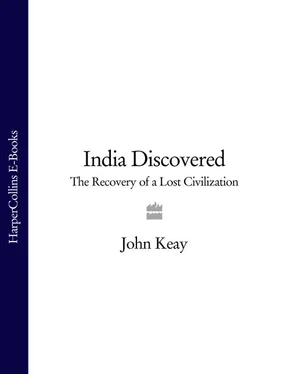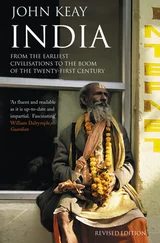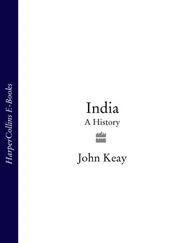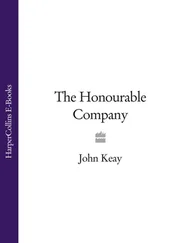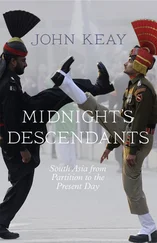Sir William Jones was no exception. His first priority was to attain financial independence, or to be precise, a clear £30,000. On the strength of his appointment to the post of Supreme Court judge in Calcutta, he had been knighted and had married. His salary, he calculated, would enable him and Anna Maria to save the £30,000 within six years. Then back to England, to his books and his friends.
But he was already more predisposed towards the East than most new arrivals. His professional qualifications as a jurist were unique. Edward Gibbon, then writing The Decline and Fall of the Roman Empire, described Jones as ‘the only lawyer equally conversant with the year-books of Westminster, the commentaries of Ulpian, the Attic pleadings of Isaeus, and the sentences of Arabian and Persian cadhis [judges]’. On board the Crocodile, Jones had continued his studies in Persian law. He needed to make a small fortune, but he also expected to administer justice to the people of Bengal according to their own laws, and indeed, to study and clarify these.
Elsewhere Gibbon described Jones as more than a lawyer; he was ‘a genius’. And it was for his other attainments, considerable by any standards, spectacular by those of British India, that he was already best known. The son of an eminent mathematician, he was a keen student of mathematics, astronomy and the sciences – and yet first achieved distinction as a classical scholar. Greek and Latin literature were his passions; he modelled his letters on Cicero, his speeches on Demosthenes, and spattered both with classical allusions. At Oxford he turned to modern languages and then Persian and Arabic. His first published works were typical: a Persian grammar and a translation from Persian into French. He was also a much acclaimed poet, was intensely interested in music, and had the bottomless memory so vital to any polymath; aged eleven, it is said, he amazed his schoolfellows by supplying them with the entire text of The Tempest out of his head.
But oriental literature was now his leading interest. Whilst in India he intended to collect manuscripts; he was even prepared to invest some of the £30,000 in them. As the Crocodile had sped across the Arabian Sea, with India ahead and Persia to port, he had been overcome with a flush of intense excitement. Culturally speaking, what a vast and unexplored field lay about him; what untold riches were hidden there; and what a glorious achievement if he could lead men in their systematic discovery.
After a couple of days in Madras, the Joneses were back on board ‘the sweet little Crocodile ’ and heading for Calcutta. Madras, once the pride of the British settlements in India, had already been eclipsed. Calcutta, founded less than 100 years before, was now the great attraction. Through Clive’s treaty with the Moghul emperor in 1765, the whole of Bengal, stretching from Benares to Burma, had been ceded to the East India Company. Commercial priorities were giving way to administrative and fiscal necessities. Casually, precariously, but inexorably, British dominion in India was being created. Jones himself described Bengal as ‘this wonderful country which fortune has thrown into Britain’s lap while she was asleep’. Administrative responsibility meant collecting revenue, developing communications, regulating trade and administering justice; hence the judiciary and the Supreme Court, not to mention the network of civil and military officials. From being a trading settlement for seventy years, Calcutta had suddenly become a colonial metropolis.
It is hard now to imagine the city as the gay and elegant capital of the East. Few places can have gained quite such an opposite reputation in the space of a couple of centuries – like Regency Bath turning into the Bronx. Contemporary paintings by the likes of Thomas Daniell show spacious Palladian mansions, wide thoroughfares and stately gardens bordered by the blue waters of the Hughli river – no crowds, no dust; it even looks cooler. As the Crocodile sailed upriver the Joneses passed their future home on Garden Reach – a nine-mile stretch of ‘elegant mansions’. ‘They are all white, their roofs invariably flat and surrounded by colonnades, and their fronts relieved by lofty columns supporting deep verandahs.’ Each, according to a gossipy contemporary, ‘surrounded by groves and lawns, which descend to the water’s edge, and present a constant succession of whatever can delight the eye or bespeak wealth and elegance in the owners’. Then came the fort, also on the eastern bank and ‘so well kept and everything in such excellent order that it is quite a curiosity to see it – all the slopes, banks and ramparts are covered with the richest verdure, which completes the enchantment of the scene’. Finally, the city itself, flanking the fort with government offices and the homes of the military. ‘As you come up past Fort William and the Esplanade, it has a beautiful appearance. Esplanade Row, as it is called, seems to be composed of palaces.’ Indeed, Calcutta was known as ‘the City of Palaces’.
It was also, in Clive’s view, ‘one of the most wicked places in the Universe … Rapacious and Luxurious beyond concepcion [sic]’. Fortunes, so easily made, were as easily lost at the whist table. The day was dominated by dinner at about 2 p.m. – ‘a soup, roast fowl, curry and rice, a mutton pie, a forequarter of lamb, a rice pudding, tarts, very good cheese, fresh churned butter, fine bread and excellent Madeira’, and that was assuming there were no guests. After dinner the gentleman of the house downed his three bottles of claret and retired to bed until it was time for the evening promenade, supper and a ball, or another round of drinking. Pert little Emma Wrangham and the ravishing Madame Grand provided the scandals; for those too sozzled or syphilitic to stand their pace, there were also legions of ‘sooty bibis ’ (prostitutes). Factional quarrels were a way of life at every level. It was only three years since Warren Hastings, the Governor-General, had fought his famous duel with Sir Philip Francis, a senior member of the Governing Council. Yet it was all intensely exciting, like a combination of Paris in the naughty nineties and the Klondike.
The other surprising thing about this city that was to be Jones’s home for the next eleven years was its insularity. Although it was the headquarters of a sizeable chunk of India, Calcutta was less Indian even than Madras or the struggling little colony at Bombay. Clive had foreseen the possibilities of an Indian empire and Warren Hastings was aware that with government there came profound responsibilities for the Indian people. Yet there was no general awareness of such things. More typical was the attitude of Sir Philip Francis who never stirred more than a mile or two outside the city. The only British empire known to most was the one in North America that had just been lost. In India the settlement mentality prevailed. What went on in the Mofussil outside Calcutta was a mystery; what went on amongst the country powers beyond was an irrelevance. Strictly speaking, the East India Company’s administration of Bengal was just another favour granted by the Moghul emperor in Delhi and not so very different from the commercial concessions won in the previous century. ‘Up-country disturbances’ were deplorable if they upset the flow of trade; but not for another twenty years would the British feel constrained to do anything about them.
William Hodges, the artist, who was touring India when Jones arrived, thought it ‘a matter of surprise that of a country so closely allied to us so little should be known. Of the face of the country, of its arts and crafts, little has yet been said.’ After several unsuccessful attempts, Hodges managed to get as far inland as Agra and Gwalior, reminding his contemporaries of the glories of the Taj Majal and of Gwalior’s massive hill fortress, ‘the Gibraltar of the East’. They made little impression on the socialites of Calcutta. The price of indigo, Miss Wrangham’s engagement, and the shocking case of William Hunter and the three mutilated maidens were more to their taste.
Читать дальше
